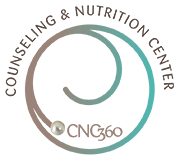by Lisa Pearl, MS, RD, LDN
 It’s been a long time since I read a diet book. After 30+ years in the profession, diet books don’t usually offer much new information and are breeding grounds for fear of food (FOF).
It’s been a long time since I read a diet book. After 30+ years in the profession, diet books don’t usually offer much new information and are breeding grounds for fear of food (FOF).
Like many Americans, my patients are FOFF (full of food fears)! Most began dieting innocently enough.Some wanted to get closer to feeling like they “fit in” or at least allay any fears that they might get fat (aka: unlovable, undesirable, unsuccessful). And many individuals struggling with life-threatening eating disorders stepped onto the slippery slope with a vague notion that they just wanted to feel better about themselves.
That first step into a diet can be a critical. The adoption of a dieting mindset is an insidious belief system that offers a dizzying array of justifications for how to eat differently and feel better. There is no end to the scrutiny one can adopt in order to purify your eating and body. The pervasive scrutiny over every little food choice and the resultant spiral into the clutches of an eating disorder are well documented. Perhaps even dating back to the 13th century. In his book Holy Anorexia Rudolf Bell describes Italian nuns from the 13-15th centuries who believed in attaining a higher moral and spiritual ground through dietary purification and restriction. This of course resulted in premature deaths and ultimately a papal decree to eliminate any such behaviors in other religious communities.
Back in America, we have now ingested decades of dietary recommendations feeding us myriad ways to get fit, lose weight, change our lives, and lots of other promises of health and success. When I returned from living in Asia, I heard about the new Paleo diet from a friend. That was soon followed by patients telling me how triggered they were by the talk of the Paleo diet all around them. So I thought the time had come for me to read about the latest American diet influence.
First I noticed that the diet book section of the store had grown ever larger since my last visit. And secondly, there were several books devoted to the Paleo diet, with some dating long before my selection – The Paleo Solution by Robb Wolf – was written. I took a quick glance at the contents I was about to spend my hard-earned $26 on. It had all the expected health claims and extensive explanations for why the way I was eating now would inevitably cause heart disease, cancer, autoimmune diseases, inflammation on all systems, and a premature death. There it was: FOF (fear of food) – and an untimely demise – just the kind of information that will send a send a healthy person right into the abyss.
Despite feeling resistance to read another book that will distance Americans from understanding their own unique physiology and path to health, I decided to push on through the read. To his credit, Robb Wolf has done his research and made some good connections between types of food and health. I have to admit that my inner nutrition nerd enjoyed revisiting the biochemistry of food. However, his underlying premise that we need to eat like Paleolithic humans has been handily debunked. Watch Christina Warinner’s Ted Talk for details. And his one-size-fits-all approach to health will never work for most global citizens who rely on a plant and grain based diet to survive.
When it comes to recommendations, there is some common ground with most nutritionists and diet book authors:
- Eat foods as close to their natural state as possible to optimize nutrient concentration and reduce preservative consumption.
- Eat a variety of foods so that your body has the best possible chance of harvesting all of the nutrients necessary for health.
- Eat enough nutrient rich foods to optimize your metabolic health, longevity and reduce cravings for nutrient empty foods.
- Fats and proteins are essential components of a healthy intake.
- Get enough sleep to keep your body’s hormonal balance normal.
- Movement is a critical part of maintaining health.
- Health is universally defined by body, mind, and spirit and as such requires attention to all 3 realms.
In my opinion, problems arise when people begin to distance themselves from their own individual attunement to health to follow someone else’s ideas. As a nutritionist, I have lived through the American fattening with low fat diets and the negative health consequences that followed. Before that I worked through the low carbohydrate diets and the ensuing years of bulimia for their devotees. Are we here again? On the websites for Paleo followers, there is scant attention to the effect of the diet on eating disorders. There is some mention that the problem with people binging on carbohydrate lies not in the Paleo restrictions but in our culture of fast food. The thinking goes that people would not feel deprived and binge on junk food if those foods were not available. Given that living in a farm-to-table community is not available to most of us, we will have to find another answer. And for those with anorexia, they are encouraged to simply follow the paleo recipes as if having the right recipes will correct the eating disordered thinking of anorexia.
Eating disorders are a spectrum illness with symptoms ranging in severity. For those whose symptoms are interfering with their physical or mental health, I urge you to contact us or seek help from a nutritionist or psychotherapist who specializes in eating disorders within your area.
But what about the people who have a daily struggle and yet remain outside the diagnostic criteria for an eating disorder? More and more statistics are compelling us to see that many, many people struggle with subclinical eating disorders. Jennifer Thomas and Jenni Schaefer have recently coined the term, Almost Anorexia, and written an important book of that name looking at this phenomenon in our culture. They describe, “almost anorexia is a way station between full blown eating disorder and full blown recovery”. See our article by Natalie Gornstein, LICSW for more.
Like Thomas and Schaefer, I have seen this way station be the gateway to horrendous eating disorders or alternately a phase that people must work through to achieve full recovery. I often joke with my recovered patients during our last session that they are now in the select minority of Americans who have a healthy relationship with food and body. I think this way station is also packed with people who are simply looking for a new path to health.
For the health seekers, let me offer another option. Discover the delicious foods that allow your body to feel energized, vital, and satisfied. Work with a nutritionist to understand your unique physiology and nutritional needs. Listen to the wisdom already present in your body and create your own personal blueprint for optimal health. Work with a psychotherapist to root out any underlying vulnerabilities that keep you from attending to your health. The providers at CNC believe that if you strengthen from within, you will have the best possible resistance to any source of external toxicity. We believe that attending to your whole life, mind and body, will define and create your lifetime of health. There’s no need to live your life at a way station. We believe in full recovery.
